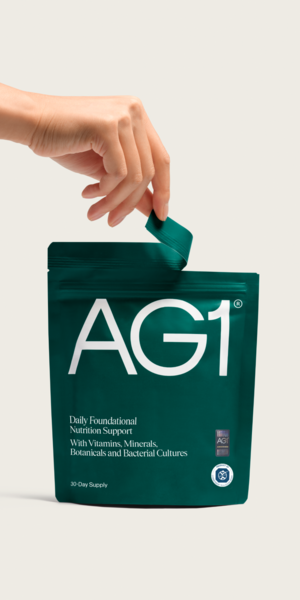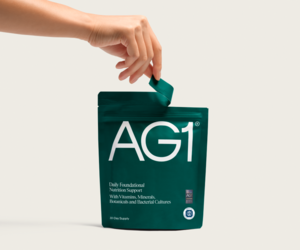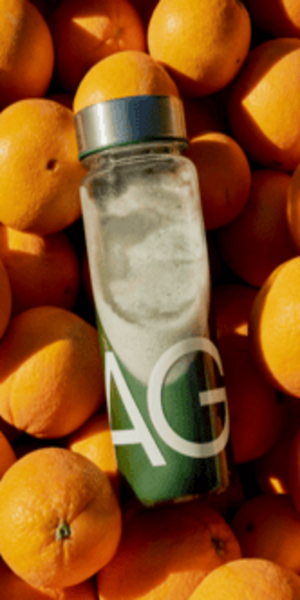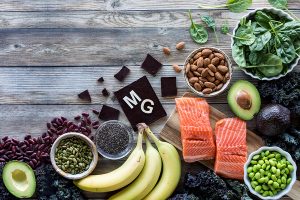Top tips on how to achieve a balanced and healthy plant-based diet
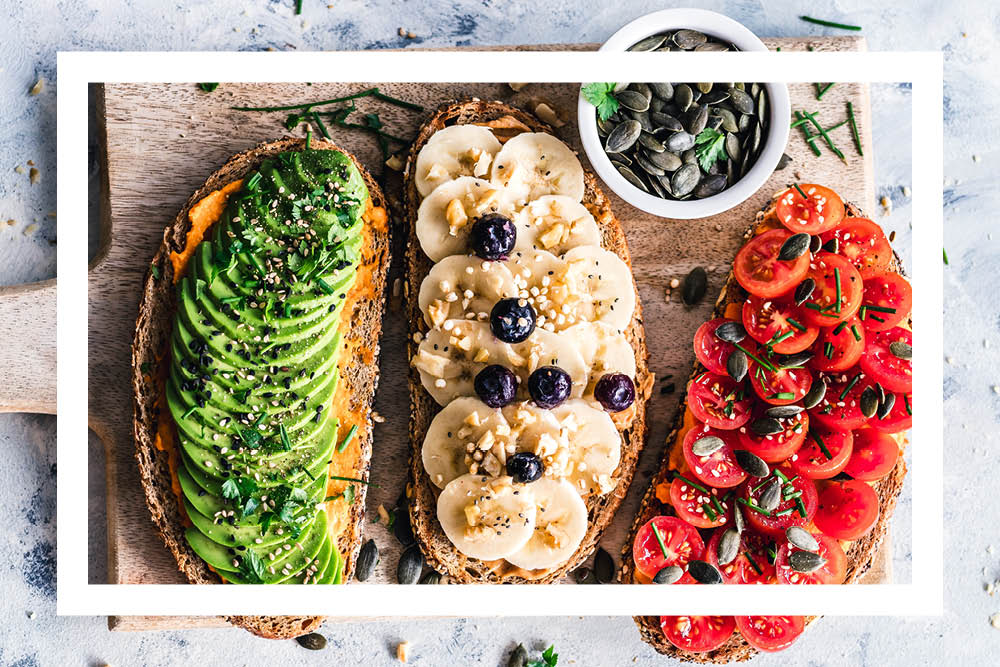
According to finder.com it is estimated that by the end of 2020 there could be 5.2M less meat-eaters in the UK. Plant-based diets continue to rise, and their reports indicate there could be a total of 2.1M vegans and 5.9M vegetarians this year.
As more and more Brits adopt plant-based diets and lifestyles for health, environmental and ethical reasons it is important to educate ourselves on the nutritional qualities of various categories of plant-based foods. From vitamins and minerals to protein, fats and carbohydrates, it is not just focussing on what not to eat, but what we should be eating.
It is also worth noting that plant-based does not automatically mean healthy, and that is one of the key differences when compared with a whole foods plant-based diet. Diets based on whole foods (whether it includes meat or no-meat) tend to avoid and limit highly processed foods that are high in fat, salt and sugar.
If you are thinking of reducing your intake, or cutting meat from your diet, or are already vegan or vegetarian, here are our top tips to ensure you get all the nutrients you need:
ACHIEVING A BALANCED DIET
The Eatwell Guide is a useful tool recommended by the UK Government to define recommendations on eating a healthy balanced diet. It generally promotes a varied whole foods plant-based diet that is high in fruit and vegetables and starchy carbohydrates and low in saturated fats.
Foods are categorised into 5 main groups:
Fruit & Vegetables
Around 35% of all foods eaten should come from fruit and vegetables. Those on plant-based diets typically eat more fruit and vegetables but many Brits are still not meeting the recommended 5 portions per day. This includes all fresh, frozen, dried (no added sugars) and canned (not in brine or syrup) varieties as well as 150ml serving of juice or smoothie.
Tip: Include a serving of fruit or vegetable at every meal, plus 1-2 snacks and you’ll easily hit your daily needs.
Starchy Carbohydrates
Around 35% of all foods eaten should come from starchy carbohydrates. These include whole wheat pasta, brown rice, oats, potato (with skin on), quinoa, whole grain cereals and brown bread.
Tip: Base each meal on a starchy carbohydrate that is ideally wholegrain or high in fibre.
Protein
Around 15% of all foods eaten should come from protein sources. These include all types of beans and legumes as well as tofu, tempeh, seitan, nuts (and nut butters), seeds, nutritional yeast and eggs for vegetarians.
Tip: Add protein as an accompaniment to meals such as toppings, snacks or side dishes.
Dairy Alternatives
Around 10% of all foods eaten should come from dairy or dairy alternatives. This includes milk, cheese and yoghurt for vegetarians. Vegans should choose plant alternatives such as almond or oat milk that are fortified with calcium and other vitamins.
Tip: Check product labels to ensure they are fortified. Alternatively, choose high calcium whole foods such as tofu and nuts.
Oils and Spreads
A very little portion of all foods eaten should come from oils and spreads that are ideally high in unsaturated fats which provide heart health benefits. These include olive oil, sunflower oil, rapeseed oil, sesame oil, peanut oil, canola oil and dairy-free spreads.
Tip: Don’t forget, oils are high in fat so do use sparingly. Fats such as coconut oil and palm oil are high in saturated fat and should be limited.
MEETING NUTRIENT REQUIREMENTS
When transitioning to a no or low meat diet, it is important to replace the nutrients that had previously been provided by animal products with appropriate alternatives. Let’s take a look at these key nutrients.
Vitamin B12
This vitamin is essential in the production of red blood cells, metabolism of food and normal growth and development. B12 is derived naturally from only animal products, therefore it is best for vegans to choose fortified foods such as plant milks, cereals, vegan spreads, yeast extract and meat substitutes or alternatively take a vitamin supplement. The recommended daily amount is 1.5mcg per day for both women and men.
Tip: Check fortified food labels for levels of B12 and aim to have fortified foods 2-3 times per day to meet the daily requirement.
Protein
Protein is essential in many bodily functions including the building and repair of cells, tissues and muscles. Formed of amino acids, there are 8 essential amino acids which the body cannot synthesise and can only be obtained from food. Good plant sources include all types of beans, chickpeas (and hummus), peas, soy beans (tofu, edamame, tempeh), nuts (nut butters) and seeds.
Tip: There are some misconceptions that animal protein is superior to plant protein, which is not true. Although animal protein contains high levels of all essential amino acids, eating a variety of plant foods will ensure you meet all amino acid requirements.
Iron
Iron is a mineral essential for transporting blood around the body. Good plant sources include lentils, beans, chickpeas, tofu, cashews, chia seeds, hemp seeds, pumpkin seeds, kale, dried fruit, quinoa and fortified foods. Vegans and vegetarians should aim to consume over the daily recommended amount, at 14.8mg for women and 8.7mg for men, as plant sources contain non-heme iron which is not as readily absorbed by the body.
Tip: During meals, avoid tea/coffee which inhibit iron absorption, and include sources of Vitamin A and C which promote iron absorption. Such as cruciferous vegetables, bell peppers, tomatoes, sweet potatoes, citrus fruits and berries.
Calcium
Calcium is a mineral essential for healthy bones. Good plant sources include tofu, leafy greens, almonds, sesame seeds/tahini, dried fruit, pulses, bread and fortified plant milks/cheese. The recommended daily amount for both women and men is 700mg per day.
Tip: A balanced and varied diet is the best way to meet calcium requirements. Maintaining good levels of Vitamin D in the body promotes calcium absorption.
Omega 3
Omega 3 is a type of fat and is vital for the functioning of cardiovascular, reproductive, immune and nervous systems. Oily fish is usually the main food source. Good plant sources include algae/seaweed, flax seeds, chia seeds, walnuts, hemp seeds and soy. Vegetarians can also get a good source from eggs.
Tip: Algae and seaweed provide a type of omega 3 that is more easily processed by the body, a supplement may be a suitable alternative.
Iodine
Iodine is a mineral required to synthesise thyroid hormones. The main sources are from fish, dairy and eggs. Although grains, fruits and vegetables do contain iodine, levels tend to be very low and vegans could be at risk of deficiency. Good plant sources include seaweed and fortified table salts, alternatively, a supplement may be suitable. The recommended daily amount is 140mcg per day for women and men.
Tip: Be careful to consume too much seaweed, which can contain excessive amounts of iodine.
Selenium
Selenium is an antioxidant mainly found in eggs, meat and fish. Good plant sources include brazil nuts, cashew nuts, sunflower seeds, couscous and whole wheat pasta. The recommended daily amount is 60mcg for women and 75mcg for men per day.
Tip: Just 1 brazil nut per day will provide enough Selenium for both women and men. Try chocolate-coated varieties for a sweet treat.
Vitamin D
Vitamin D plays an important role in bone health by increasing calcium absorption. The best source of vitamin D is sunshine, however during winter months in the UK it is important to maintain sufficient levels through dietary sources which are usually derived from animal products. Good plant sources include fortified products such as plant milk, cereals and vegan spreads.
Tip: Check food labels for levels of vitamin D and make the most of sunny days where possible.
Remember, that for any dietary lifestyle to be sustainable it needs to be true to you and your individual needs. Do try to push your boundaries and explore new foods, but ultimately eat what you enjoy. Find a healthy balance within a whole foods plant-based lifestyle that best suits you.




